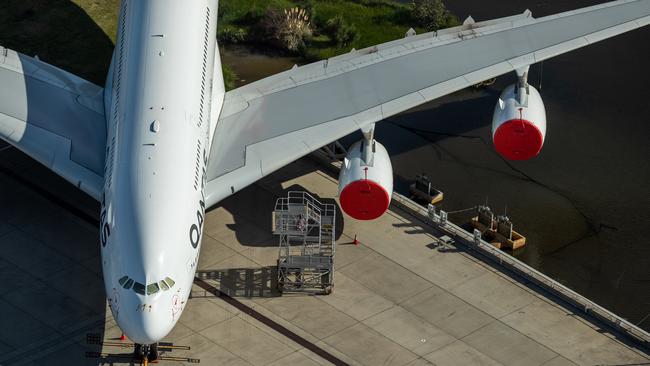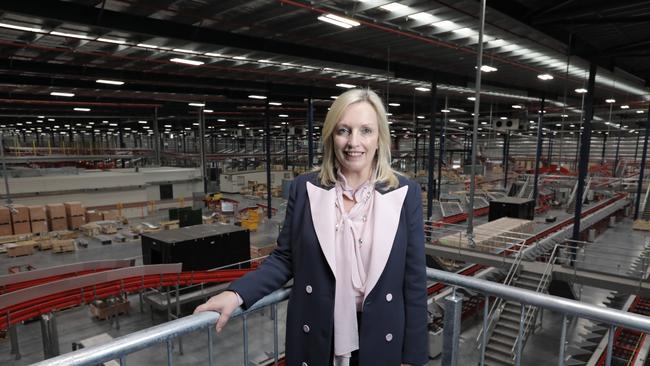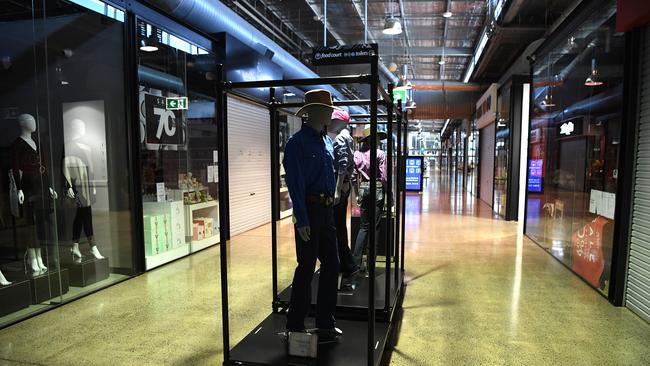
The Berejiklian and Holgate alerts signal lower long term returns in two areas that have provided high rewards for investors for decades. And, in the case of Sydney Airport, it raises the question of whether directors should have retained its monopoly by exercising its right to develop the second Sydney Airport at Badgerys Creek
The airport issue was highlighted when NSW premier tentatively canvassed rescuing Virgin on the basis that it based its operation at Badgerys Creek.
To have Australia’s second airline based at Badgerys Creek would reduce the value of the listed Sydney airport because it would create real price competition.
When the decision was made by Sydney Airport in 2017 not to pursue badgerys Creek there were optimistic estimates of future growth, but the collapse of Virgin and the likely long term reduction in overseas visitors and students changes that scenario.
NSW is committed to a fast rail link to the new airport and so wants airlines to use it to help the rail economics. They will be by courted with attractive offers and perhaps “survival” deals like Virgin. Had Sydney Airport controlled Badgerys Creek, its monopoly would have kept its control over prices. I will tell the fascinating tale of the Sydney Airport rejection below.
Change in the mail

Those still using Australia Post for mail bemoaned Christine Holgate’s decision to deliver every second day, but she took that step because online retailing is exploding. The vision of former Australia Post chief Ahmed Fahour that the declining Australia Post would be transformed into a virtual national shopping centre complex now being realised in the reign of his successor.
When the COVID-19 restrictions are eased there will, of course, be some swing back to bricks and mortar centres, but they will not return to anything like the old days.

Smart shopping centre operators will adapt but others will fall by the wayside. Rents have to fall to enable the centres to compete with Christine Holgate. And the retailers who prosper in this new era of shopping centre glut will often be those that rely more on Australia Post, even though the bricks and mortar rents will be much lower.
Just as Badgerys Creek has broken the Sydney Airport monopoly so Holgate and Fahour broke the retail shopping centre stranglehold. But in the case of Sydney airport there was a moment in time when a very different outcome was possible.
A tale of two airports

Let’s go back to 2002 when the Howard government decided to sell Sydney Airport. At the time the most powerful non-politician in the government was the legendary Maxwell Moore-Wilton, colloquially known as “Max the Axe”.
John Howard appointed Moore-Wilton as secretary of the Department of Prime Minister and Cabinet in 1996, and for the next six years he was closely involved in most major decisions of the Howard government. His skills were an integral part of that government’s success.
In 2002, his last year in the role, the Howard government sold a 99-year lease on the airport for $5.6 billion to a Macquarie Bank-led consortium. One of the clauses in that agreement was a first right of refusal to develop a second Sydney airport. It ensured the buyer would have a monopoly for a century; an incredible deal.
Some six months later in December 2002 Max Moore-Wilton resigned from the public service only to take up the job of chief executive of the Sydney airport operating company. There was considerable controversy at the time, but the talents Max showed in the public service were translated to the airport. He had various roles during the next 12 years but retired in 2015.
At various times during those 12 years the issue of whether Badgerys Creek would be developed was often raised but always fizzled out. Rightly or wrongly. many believe that the power of the legendary public servant never completely left Canberra and Max’s retained influence played a role in Badgerys Creek being pigeonholed.
But in May 2015 Moore-Wilton, then 72, retired from the Sydney Airport company. Two years later, the Turnbull government committed to constructing Sydney’s new $6 billion-plus airport at Badgerys Creek
The decision came after Sydney Airport turned down its “right of first refusal” to build and operate Western Sydney Airport. Urban Infrastructure Minister Paul Fletcher had gambled that Sydney Airport board would make that decision and believed it made sense for the government to build and own the new airport.
‘Considerable risks’

The official Sydney Airport line was that the project contained “considerable risks” that would extend for decades. But behind that decision was a conflict. Sydney Airport had become a highly leveraged infrastructure income stock. The last thing its income-seeking shareholders wanted was a big new capital investment that would cut the dividend. The shares would have slumped. Yet the directors were throwing away a 99 year monopoly over air traffic in Australia’s largest city.
Longer term it was a bad decision and that will become apparent in the decade ahead because you can be sure that Qantas will want a very good deal to keep its long haul international traffic at Sydney airport, especially given the fast train to Badgerys Creek.
Max needed to have stayed around a few years longer.







As the extent of the global oil glut in the wake of COVID-19 stuns the nation, so NSW Premier Gladys Berejiklian and Australia Post chief Christine Holgate have alerted us to two new looming gluts: Sydney airport capacity and shopping centres.